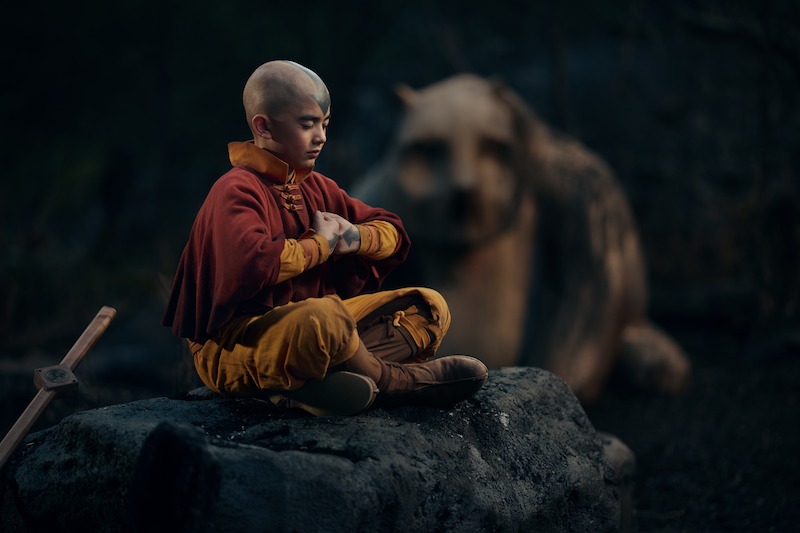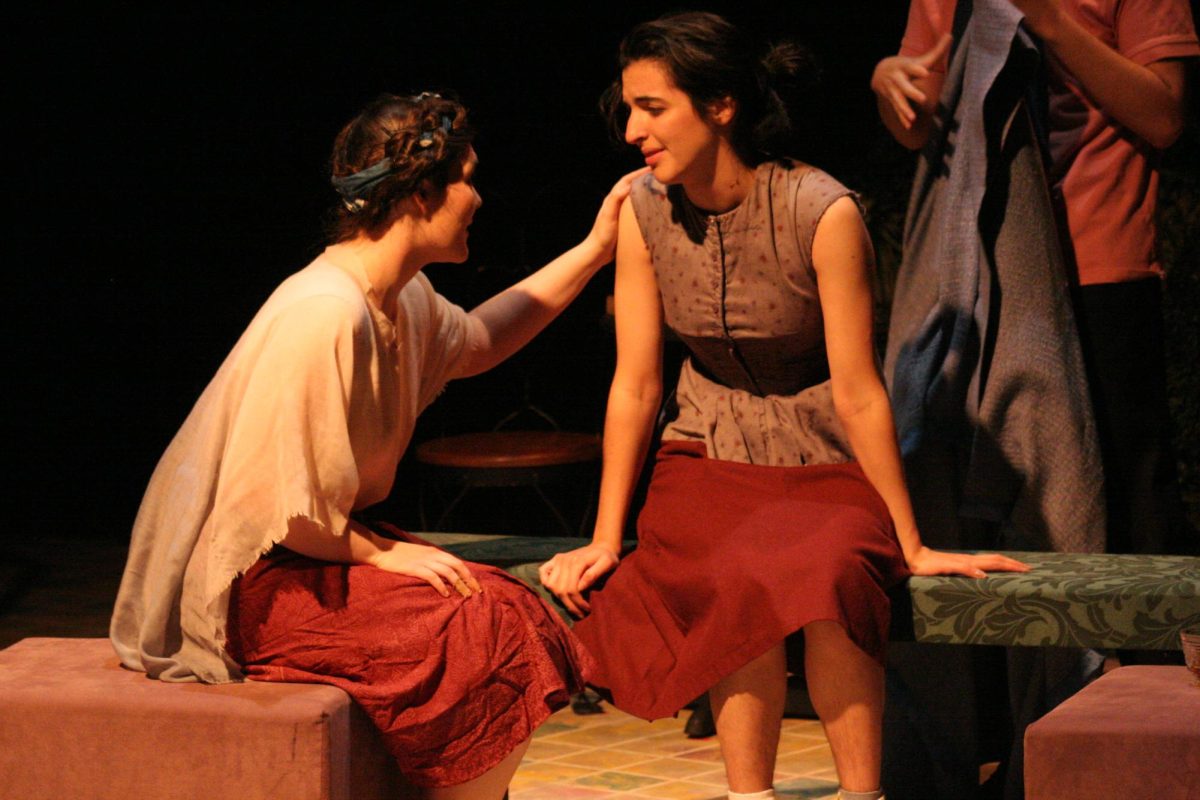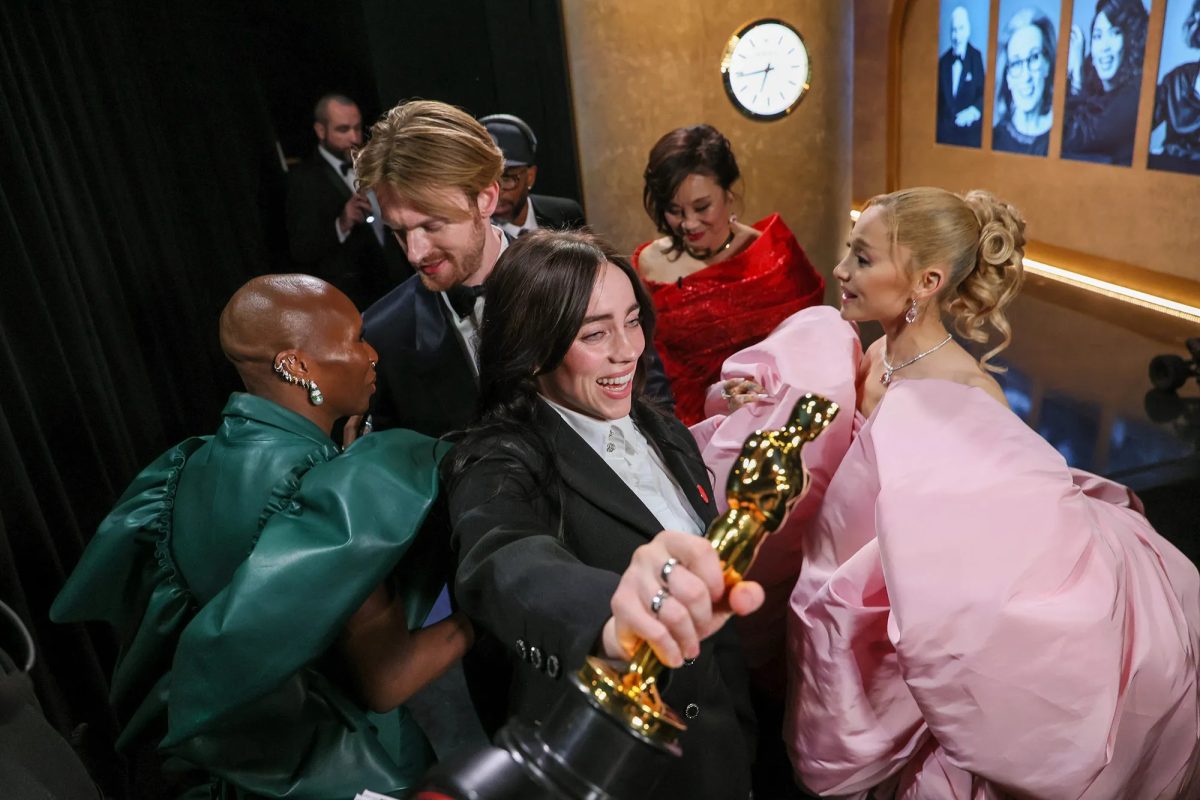Although I first watched Avatar: The Last Airbender as a child, I, along with many other Netflix enjoyers, admittedly rediscovered an obsession with the animated series during the pandemic. Bound inside the lonely walls of my house with all of my social interaction consisting of scattered FaceTime calls, I sought a source of comfort to help pass the time. The series was my sanctuary, healing my inner child’s cries for peace. I quickly developed an adoration for the characters’ iconic traits — Aang’s playfulness, Sokka’s humor, and Katara’s abundance of emotion. The show powerfully explored this trio’s intense journey as they saved the world from the war with the Fire Nation, but the lighthearted elements and strong character development were what drew me in. However, the live-action adaptation seemed to largely omit these core aspects, stripping the show of its soul and leaving us with an uncanny valley imitation.
With a change in rating from TV-Y7 to TV-14, I anticipated the increase in maturity levels but not the decrease in fun levels. The Fire Nation’s violence was shown to a greater, more ruthless extent than the animated series, initially providing a shock but continuously serving as a reality check of the war’s unforgiving nature. In the original show, the murders of Monk Gyatso and Katara’s mother were talked about and grieved by Aang and Katara, but the scenes gave us context, not a direct visual. The live-action version, however, mercilessly captured the victims’ bodies burning up into flames and ash, even forcing Katara, played by Kiawentiio Tarbell, to witness her own mother’s death from just a few feet away. One would think that with the comical number of times Katara mentioned her mother’s death in the original series, the live-action would go even further. To my surprise, this was not the case. In fact, her character’s impact often fell short. With the exception of a few forced yells, Katara’s emotions were nearly nonexistent. I recall one scene where she was pushed to the snow, and her face almost had a smile on it. This expression remained constant throughout the show and attempted to accompany what was supposed to be anger, sadness, grief, and joy. I think that I could make a collage of all of her expressions during the show, and they would look like exact replicas of each other.
One of the greatest disappointments was Aang’s character, played by Gordon Cormier. Yes, he is the Avatar. Yes, he undergoes the immense pressure of being expected to single-handedly save the entire world from the Fire Nation’s wrath. However, what made his character so memorable and loveable in the animated series was that he never let the audience forget his most defining characteristic — he was 112 years old with a 12-year-old’s body and personality. He was the fun-loving protagonist who, for the majority of the show, held onto his childlike innocence and invigorated spirit. To put it simply — Aang was just a kid. So why was this not reflected in the live-action adaptation? It was due to the intensity of the war that Aang’s playful nature in the animated series was so integral to the trio’s journey. In the midst of violence and chaos, the Avatar not only saved lives with his powerful bending but provided hope with refreshing positivity and youthful humility. In the live-action adaptation, Aang rarely displayed any behavior reminiscent of a normal 12-year-old. In one scene, however, he laughed while spinning around on a sphere made of wind, just as he used to do with his friends before the 100-year war began. This scene evoked a feeling of nostalgia that I did not otherwise experience in the show. It was a perfect example of Aang’s original personality. He was never meant to be serious or mature, even given the world’s dire state.
Another character who was not exactly known for his maturity is Sokka, played by Ian Ousley in the live-action adaptation. The removal of his sexism took away a key component of his character’s growth. His lack of respect for women no longer shifted perspective due to Suki’s influence; it was never there in the first place. When I first heard of this change before the show was released, I assumed that his iconic sense of humor would present itself in other ways. I was wrong. Sure, Sokka believes that he is a mature leader, even in the original series, as he is the designated protector of his tribe. However, his frequent jokes, animated tone and gestures, and unserious personality are what make him a fan favorite. These crucial aspects were rare in the live-action version.
I will say that this is one of the limitations of adapting an animated series into a live-action version. If the character is too animated, it’s awkward and highly unrealistic. If the character is not animated enough, the show is stiff and boring. Balancing the two is difficult, but I do feel that it could have been executed better.
The development of the individual main characters was lackluster, and so was the bond between them. Although Aang ventured on a furious search to save Sokka and Katara when they were trapped in the spirit world, I did not feel that their friendship was developed enough to reflect this desperation. The show did not call for audience loyalty to the side characters, either. When Momo, the series’ beloved winged lemur, was harmed during the siege of the North, I did not feel any emotional attachment. His lack of screen time and influence made his injury feel out of place and random.
A final complaint that I will leave with is the removal of the animated series’ classic intro, narrated by Katara. The overly lengthy replacement narrated by Avatar Kyoshi in the first episode was unnecessary and not impactful enough to justify the original introduction’s erasure.
To those of you who were also left disappointed, I hope that this provided some closure. Still, even after all of this hating, I am excited to binge-watch future seasons, and I guarantee that I will simultaneously be rewatching the original for the fourth or fifth time. Avatar: The Last Airbender will always hold a special place in my heart, irreplaceably and irrevocably.










